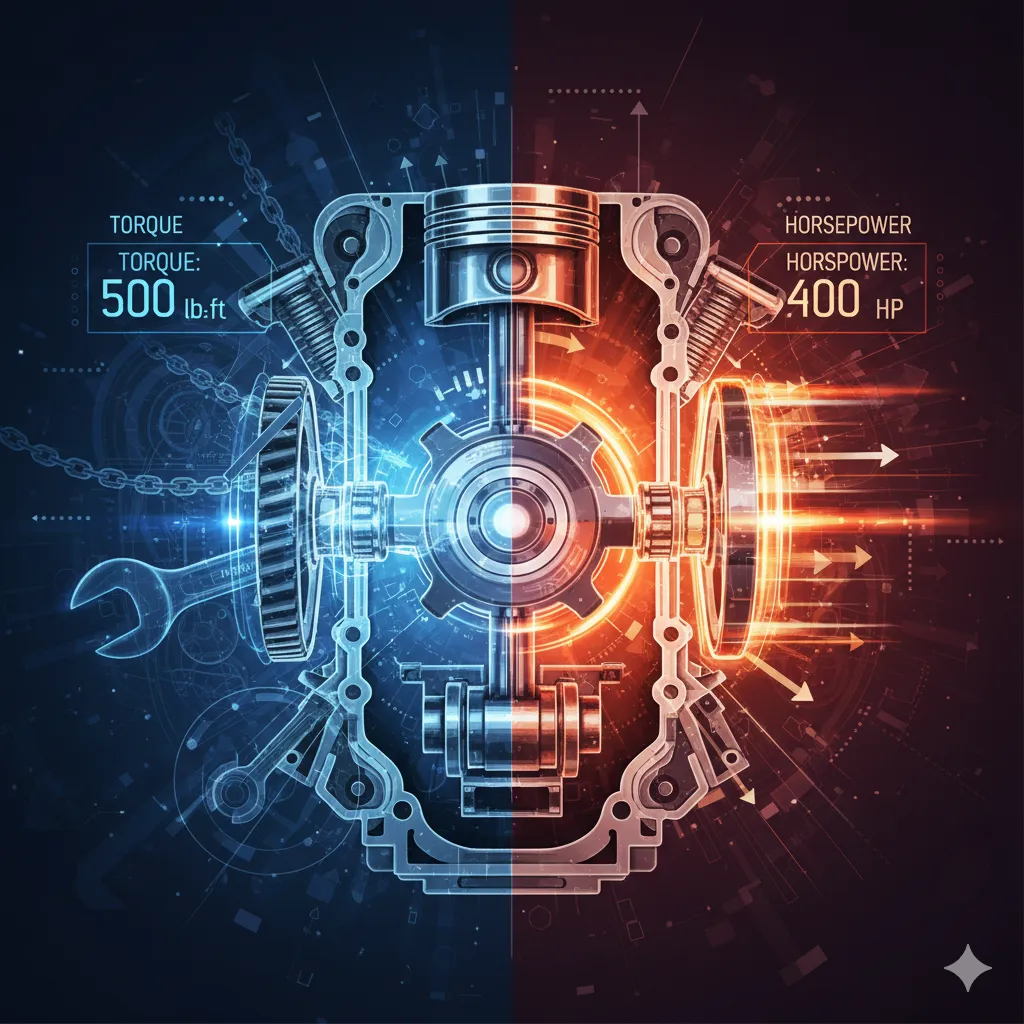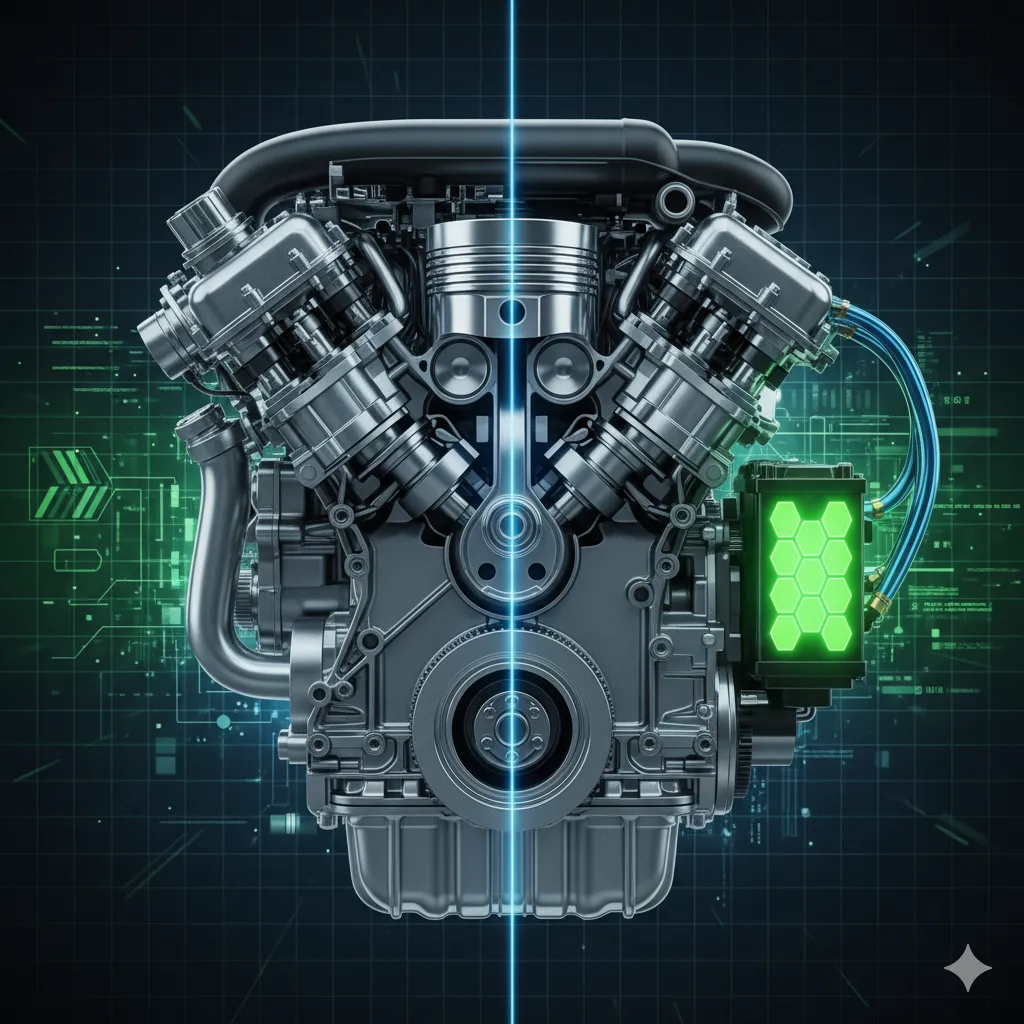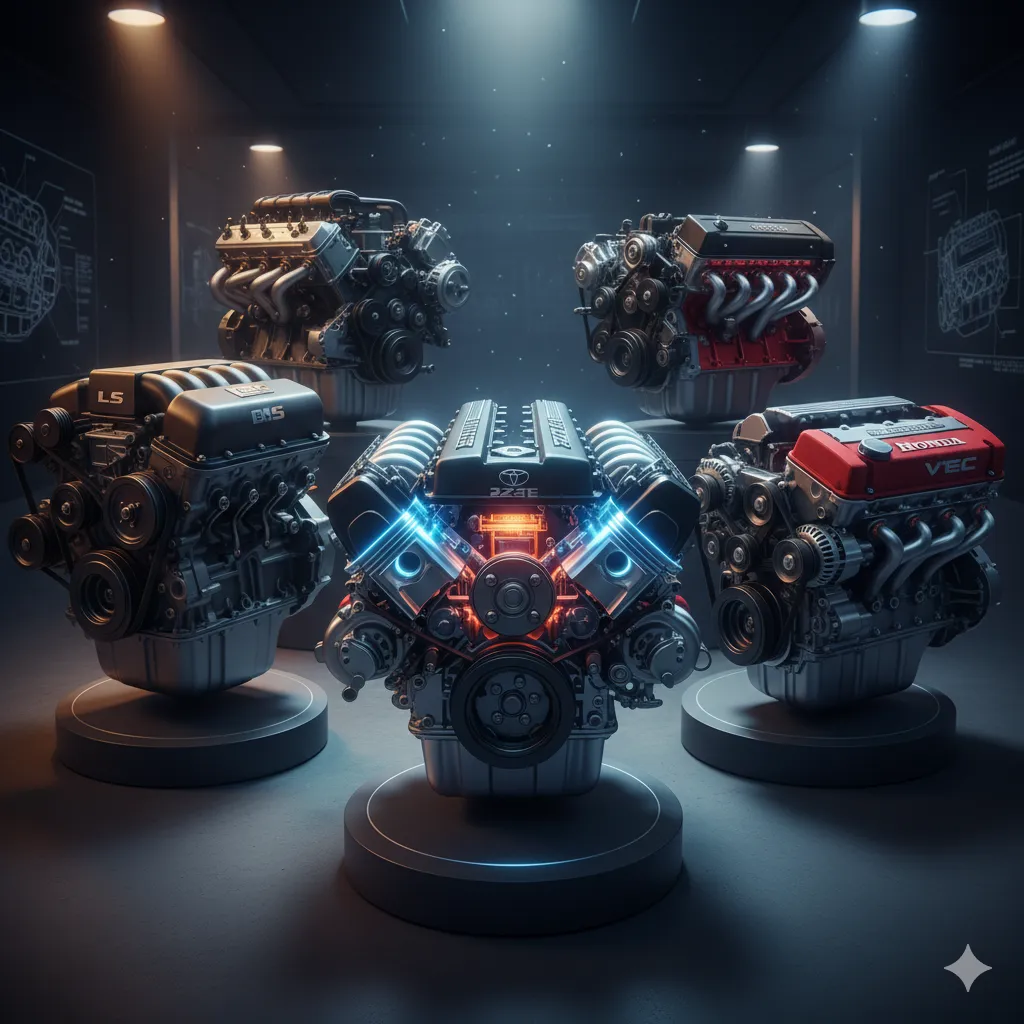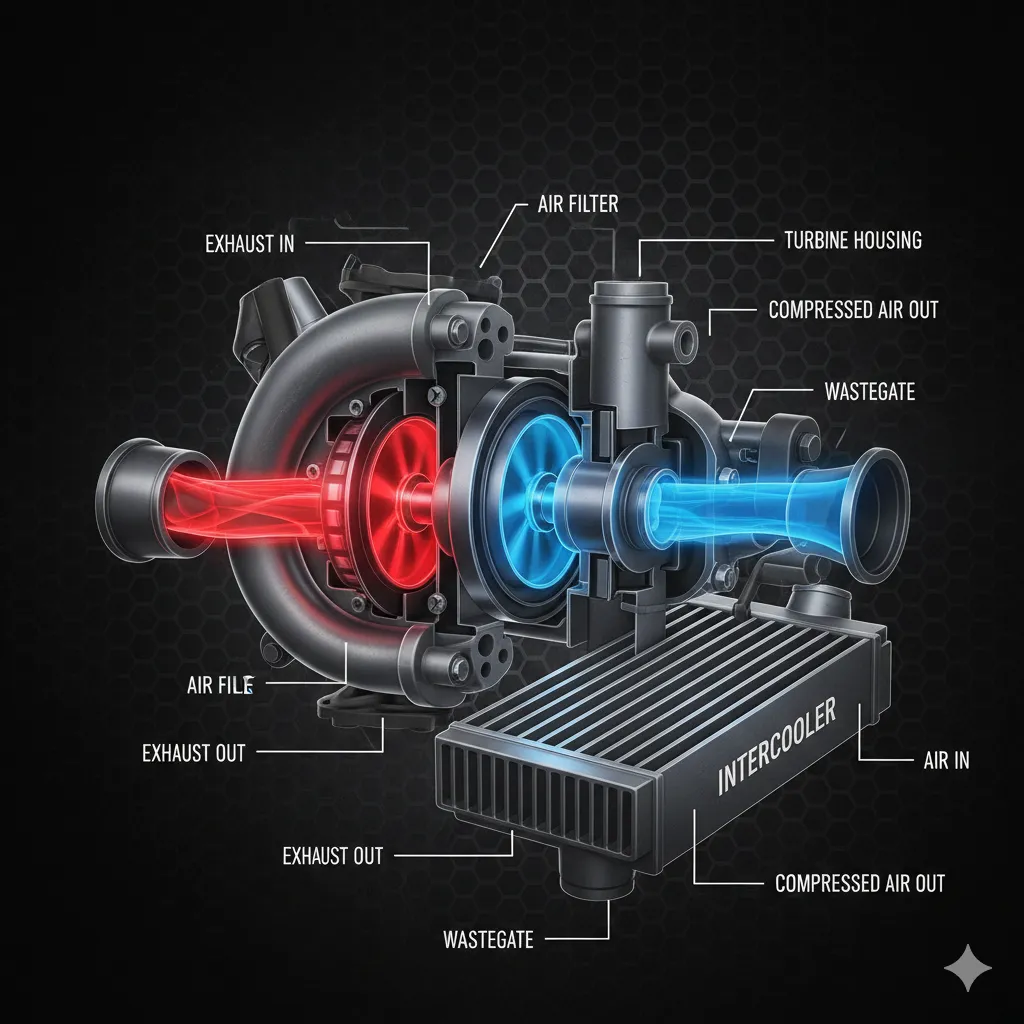
🤯 Horsepower vs. Torque: Unraveling the Engine Power Debate
When you're talking cars, trucks, or just about any machine with an engine, two words constantly pop up: horsepower and torque. People often throw them around like they mean the same thing, but they are as different as a marathon runner and a weightlifter. They are both measures of an engine's output, yet they describe completely separate characteristics.
Understanding the genuine difference between horsepower and torque isn't just for mechanics or gearheads; it’s key to knowing what truly makes your vehicle perform the way it does. Get ready to finally quash that bar-night debate with some simple, straightforward physics!
Understanding Torque: The Twisting Force
If horsepower is how fast your engine can go, torque is how quickly it gets there. Think of it as the muscle, the rotational force that gets a static object moving or helps it overcome resistance.
What Exactly is Torque?
In the simplest terms, torque is a twisting or rotational force. The physics definition is a force applied at a distance from a pivot point (Force $\times$ Distance).
-
Real-World Example: Imagine trying to loosen a ridiculously tight bolt. You use a wrench—that's your lever. The force you apply to the end of the wrench, multiplied by the length of the wrench, equals the torque applied to the bolt. The longer the wrench, the easier it is to apply more torque.
-
Engine Context: Inside your car's engine, the exploding fuel mixture pushes the piston down, which rotates the crankshaft. The force on the piston, applied at the distance of the crank arm, creates the rotational force—the engine torque. This is what turns your wheels.
Torque is all about that initial push, the raw strength to get a heavy load moving. This is why heavy-duty diesel trucks and electric vehicles (EVs) boast impressive torque figures, often available instantly at very low RPM.
-
Key Measurement Units: Pound-feet (lb-ft) in the imperial system or Newton-meters (Nm) in the metric system.
Demystifying Horsepower: The Rate of Work
If torque is the size of the hammer, horsepower (HP) is how quickly you can swing that hammer and for how long. It's not a measure of force itself but rather the rate at which that force (torque) can be delivered. Horsepower measures an engine's ability to perform work over a specific amount of time.
Where Did Horsepower Come From?
The term was coined by Scottish engineer James Watt in the late 18th century. He needed a way to market his new steam engine, so he compared its output to the power of a working draft horse. He calculated that one horsepower was the power required to lift 33,000 pounds one foot in one minute.
-
Engine Context: Horsepower tells you how much work the engine can do in a given time. While torque gets you going, horsepower is what determines your ultimate top speed and how quickly you can sustain acceleration at higher speeds. It's the sustained power, the speed factor.
The Mathematical Relationship: Where They Meet
The crucial thing to remember is that horsepower is calculated from torque. They are inseparable because you cannot have one without the other.
The standard formula for horsepower in the imperial system (using lb-ft of torque) is:
The number 5,252 is simply a constant that converts the units (pound-feet per minute into horsepower).
-
The 5,252 RPM Crossover: Due to this mathematical relationship, the torque and horsepower numbers will always be exactly equal at 5,252 RPM (for imperial units). Above this speed, the horsepower number will be higher; below it, the torque number will be higher.
This equation reveals the truth: an engine can make more horsepower by producing more torque or by spinning to a higher RPM, even if the torque stays the same.
Which Is Better? Torque or Horsepower?
The age-old debate of horsepower vs. torque is misleading—you need both! The "better" one depends entirely on the application, or what you plan to do with the vehicle.
| Vehicle Application | Priority | Why It Matters |
| Heavy-Duty Trucks/Towing | High Torque | Needs immense twisting force at low engine speeds (low RPM) to overcome inertia and move a massive load from a stop or climb hills. |
| Sports Cars/Racing | High Horsepower | Needs the ability to sustain high-speed acceleration over time, achieved by generating strong torque at very high RPMs for a fast top speed. |
| Daily Driving | Good Low-End Torque | Offers better responsiveness and that "punchy" feeling when accelerating from a stoplight without having to rev the engine high. |
For pure acceleration in a drag race, the most important factor is the area under the horsepower curve, as gears allow the engine to keep working in its most efficient (highest HP) RPM range. However, for getting a 10,000-pound trailer moving, you’ll be looking squarely at the torque number.
SEO and AEO Keyword Focus
-
Primary Keyword: difference between horsepower and torque
-
LSI/Secondary Keywords: engine power, rotational force, lb-ft, engine performance, torque vs HP, maximum torque, engine output, speed vs acceleration.
Frequently Asked Questions (FAQs)
Q1: What does a high torque number mean for my vehicle?
A high torque number (especially at low RPM) means your vehicle will have strong initial acceleration and better ability to pull heavy loads (towing capacity). It's the immediate, gut-punch of thrust you feel when you step on the accelerator from a standstill.
Q2: Why is horsepower more important for top speed?
Horsepower is a measure of the rate of work. Since it incorporates RPM (rotational speed), a higher HP number means the engine can sustain its effort (torque) at a faster rate. This ability to deliver force quickly and continuously is what allows a vehicle to push through wind resistance and other forces to achieve a higher top speed.
Q3: What are the units for horsepower and torque?
Torque is measured in pound-feet (lb-ft) or Newton-meters (Nm). Horsepower is measured in HP (horsepower) or Kilowatts (kW), which is the metric unit of power.
Q4: Why do electric cars feel so fast off the line?
Electric motors produce their maximum torque almost instantly from 0 RPM, unlike internal combustion engines that have to spin up to a certain RPM to hit peak torque. This massive, instant rotational force makes electric vehicles accelerate incredibly fast off the line
Conclusion: The Duo of Engine Performance
The debate is settled: there is no winner in the horsepower vs. torque battle. They are two sides of the same powerful coin. Torque is the raw, twisting muscle, determining how much work your engine can do, while horsepower is the speed and efficiency with which it can do it. Understanding the difference between horsepower and torque allows you to appreciate the engineering behind every engine, whether it’s a high-revving sports car designed for peak speed or a workhorse truck built for raw pulling power. They’re a dynamic duo, each playing a vital, distinct role in your vehicle's overall engine performance.
External Links
-
https://www.caranddriver.com/news/a15347872/horsepower-vs-torque-whats-the-difference/
-
https://blog.amsoil.com/the-difference-between-horsepower-and-torque/




